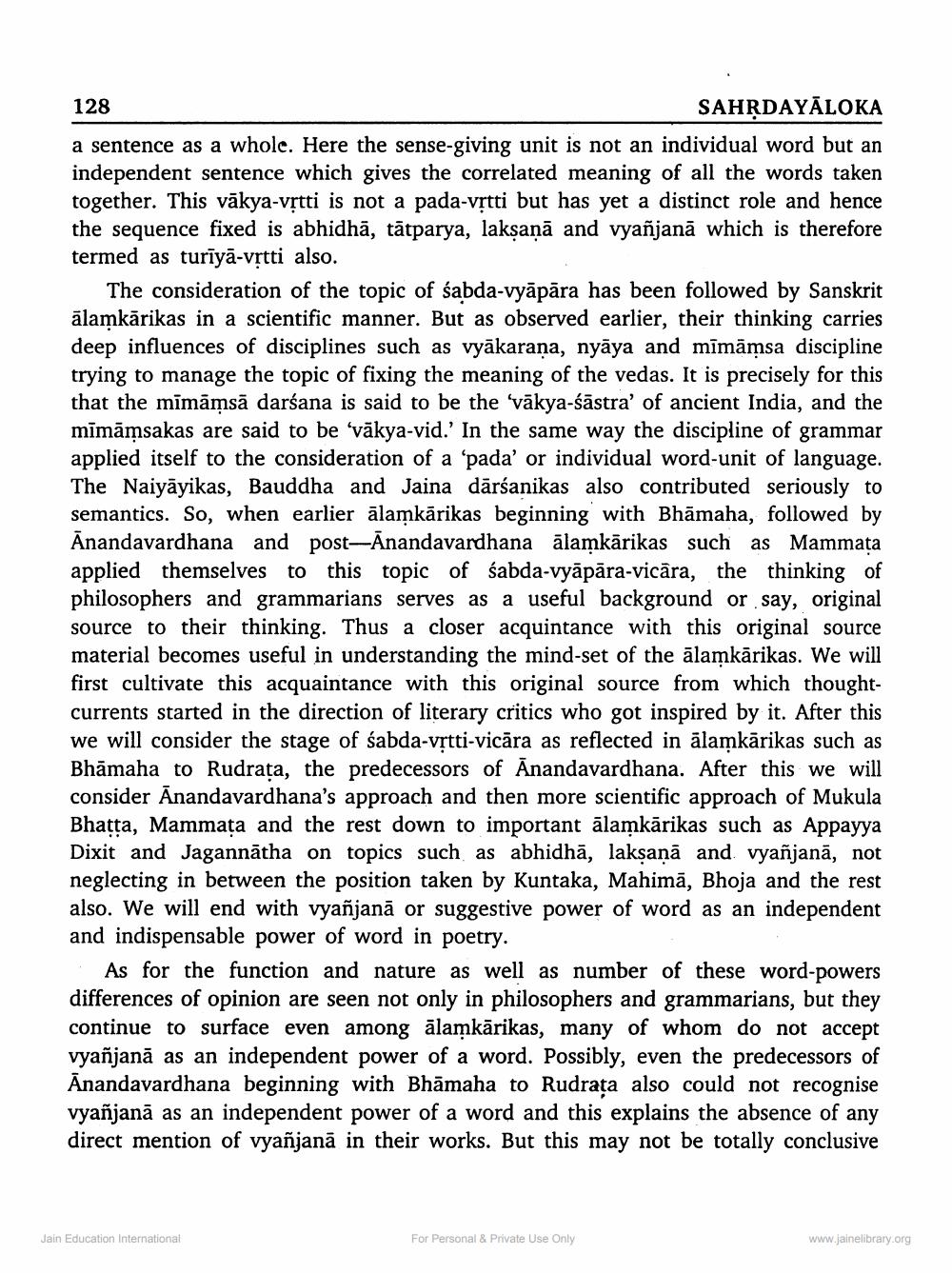________________
128
SAHṚDAYĀLOKA
a sentence as a whole. Here the sense-giving unit is not an individual word but an independent sentence which gives the correlated meaning of all the words taken together. This vākya-vṛtti is not a pada-vṛtti but has yet a distinct role and hence the sequence fixed is abhidhā, tātparya, lakṣaṇā and vyañjana which is therefore termed as turīyā-vṛtti also.
The consideration of the topic of sabda-vyāpāra has been followed by Sanskrit ālamkarikas in a scientific manner. But as observed earlier, their thinking carries deep influences of disciplines such as vyākaraṇa, nyāya and mīmāmsa discipline trying to manage the topic of fixing the meaning of the vedas. It is precisely for this that the mīmāmsā darśana is said to be the 'vākya-śāstra' of ancient India, and the mīmāmsakas are said to be 'vākya-vid.' In the same way the discipline of grammar applied itself to the consideration of a 'pada' or individual word-unit of language. The Naiyāyikas, Bauddha and Jaina dārśanikas also contributed seriously to semantics. So, when earlier alamkārikas beginning with Bhāmaha, followed by Anandavardhana and post-Anandavardhana ālamkarikas such as Mammata applied themselves to this topic of sabda-vyāpāra-vicāra, the thinking of philosophers and grammarians serves as a useful background or say, original source to their thinking. Thus a closer acquintance with this original source material becomes useful in understanding the mind-set of the alamkarikas. We will first cultivate this acquaintance with this original source from which thoughtcurrents started in the direction of literary critics who got inspired by it. After this we will consider the stage of sabda-vṛtti-vicāra as reflected in alamkarikas such as Bhāmaha to Rudrața, the predecessors of Anandavardhana. After this we will consider Anandavardhana's approach and then more scientific approach of Mukula Bhatta, Mammața and the rest down to important ālamkārikas such as Appayya Dixit and Jagannatha on topics such as abhidhā, lakṣaṇā and vyañjanā, not neglecting in between the position taken by Kuntaka, Mahima, Bhoja and the rest also. We will end with vyañjana or suggestive power of word as an independent and indispensable power of word in poetry.
As for the function and nature as well as number of these word-powers differences of opinion are seen not only in philosophers and grammarians, but they continue to surface even among ālamkārikas, many of whom do not accept vyañjanā as an independent power of a word. Possibly, even the predecessors of Anandavardhana beginning with Bhāmaha to Rudrața also could not recognise vyañjanā as an independent power of a word and this explains the absence of any direct mention of vyañjanā in their works. But this may not be totally conclusive
Jain Education International
For Personal & Private Use Only
www.jainelibrary.org




